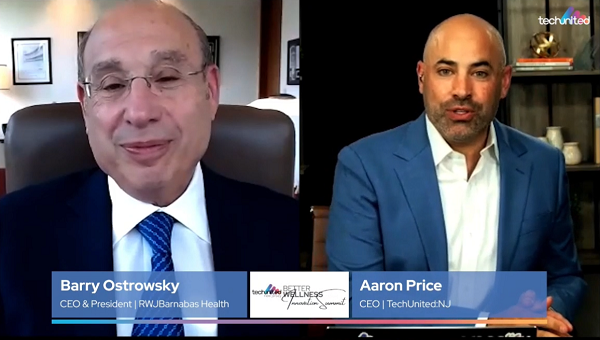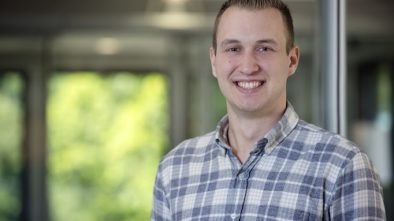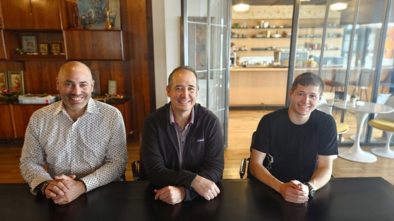RJW Barnabas Health’s Ostrowsky Talks About the Problems That BetterWellness Challenge Could Solve via Tech
When Aaron Price, TechUnited:NJ president and CEO, kicked off the BetterWellness Challenge, he asked Barry Ostrowsky, president and CEO of RJW Barnabas Health (West Orange), which is supporting the challenge, what his healthcare system is looking for from the startups that apply. (See our recent story about the challenge here).
While Ostrowsky, whose hospital system is providing the prize money for the challenge, gave several hints about the kinds of problems tech startups could solve, he emphasized that the most difficult problems in the healthcare system involve population health, and that’s what the challenge will emphasize.
He asked: How does a healthcare system solve the problems of poor nutrition within its population that lead to future illness? Also, how does a healthcare system find patients in need before they get so far along in their illnesses that it’s difficult to treat them?
He gave some context to his remarks. The research is “irrefutable,” he said, that the health of people who live in RJWBarnabas Health communities “is determined 10 percent by genetics, 30 percent by what we in the clinical realm do and 60 percent by social determinants.”
If you live in areas where you have no access to food or are only able to get low-quality food, “you are going to be sick and you are not going to be able to live the life that you aspire to live. … We need to be able to connect with the people in our communities, not just to invite them to see us when they have a condition … but to talk to us in a meaningful, candid way about the other challenges they face,” such as job training or housing upkeep.
For decades, he said, when people have come for clinical care, those who suffer from negative social determinants have had poorer health outcomes than those who do not. “By the time we get to see some of these folks, the outcome clinically will not nearly be as effective, to say nothing about the people who live in vulnerable communities that don’t have access to these programs or this care.”
Another problem is that clinicians are not trained to perceive the inequities facing various populations based on race and ethnicity.
“That context suggests that we need new ways to connect with our community. And some of that is technological. We need new ways to be able to advocate for better lifestyle choices. We need better ways to train our future clinicians, so that they [will have the] cultural competencies that are necessary in order to effectively support our communities.”
While these points are probably obvious to tech entrepreneurs, Ostrowsky said, they’ve never really been applied effectively to help community members. For example, “We have not built housing that is technologically geared to deliver care in the home. And that will be the number-one value going forward.” he said.
“So, when we’re able to outfit, house and shelter effectively… [and provide] immediate access to clinical and social care, you will have a better life, and we will have conducted ourselves more effectively and helping our communities.”




